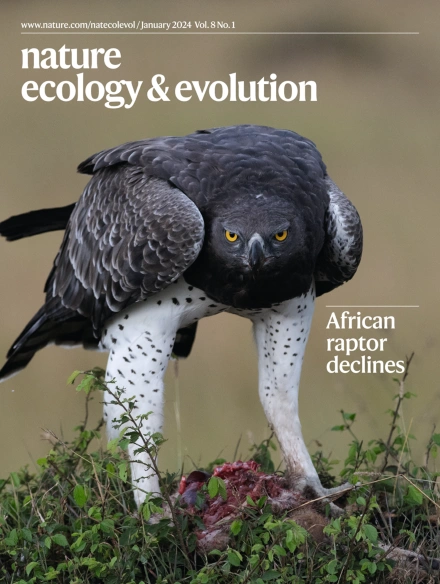不能在全球范围内扩大恢复工作,以拯救珊瑚礁免受损失和退化
IF 13.9
1区 生物学
Q1 ECOLOGY
引用次数: 0
摘要
珊瑚恢复作为解决珊瑚普遍、反复出现的大规模死亡事件的连续方法的一部分越来越受欢迎,这些事件连同高死亡率和慢性死亡率、生长缓慢和再生失败一起威胁着全球珊瑚礁的持久性。然而,与大规模珊瑚恢复相关的货币成本是巨大的,使广泛实施具有挑战性,特别是缺乏协调和生态知情的规划。通过将记录珊瑚恢复成功的综合数据集与当前和预测的环境、生态和气候数据相结合,我们强调了尽管之前和正在进行的努力的程度,但这种协调和生态知情的方法是不可能实现的。研究表明:(1)恢复地点与人类住区的距离不成比例地接近,因此更容易受到局部人为影响;(2)恢复的直接结果似乎不受相关生态环境预测因子(如累积影响)的影响;(3)到本世纪中叶,大多数被修复的地方将面临高度严重的白化风险,最近修复的地方有一半以上已经受到影响。我们的研究结果强调了珊瑚礁群落需要加强联合制定超越当地目标的恢复指南,关注海洋变暖趋势及其对珊瑚恢复力和恢复成功的长期影响。本文章由计算机程序翻译,如有差异,请以英文原文为准。


Restoration cannot be scaled up globally to save reefs from loss and degradation
Coral restoration is gaining popularity as part of a continuum of approaches addressing the widespread, recurring mass mortality events of corals that—together with elevated and chronic mortality, slower growth and recruitment failure—threaten the persistence of coral reefs worldwide. However, the monetary costs associated with broad-scale coral restoration are massive, making widespread implementation challenging, especially with the lack of coordinated and ecologically informed planning. By combining a comprehensive dataset documenting the success of coral restoration with current and forecasted environmental, ecological and climate data, we highlight how such a coordinated and ecologically informed approach is not forthcoming, despite the extent of previous and ongoing efforts. We show that: (1) restoration sites tend to be disproportionally close to human settlements and therefore more vulnerable to local anthropogenic impacts; (2) the immediate outcomes of restoration do not appear to be influenced by relevant ecological and environmental predictors such as cumulative impact; and (3) most restored localities have a high and severe bleaching risk by the middle of this century, with more than half of recently restored sites already affected. Our findings highlight the need for the coral reef community to reinforce joint development of restoration guidelines that go beyond local objectives, with attention to ocean warming trends and their long-term impacts on coral resilience and restoration success. An assessment of existing coral restoration projects finds that accessibility drives the choice of restoration sites more than environmental and ecological factors, and most restored reefs have been or will soon be impacted by severe bleaching.
求助全文
通过发布文献求助,成功后即可免费获取论文全文。
去求助
来源期刊

Nature ecology & evolution
Agricultural and Biological Sciences-Ecology, Evolution, Behavior and Systematics
CiteScore
22.20
自引率
2.40%
发文量
282
期刊介绍:
Nature Ecology & Evolution is interested in the full spectrum of ecological and evolutionary biology, encompassing approaches at the molecular, organismal, population, community and ecosystem levels, as well as relevant parts of the social sciences. Nature Ecology & Evolution provides a place where all researchers and policymakers interested in all aspects of life's diversity can come together to learn about the most accomplished and significant advances in the field and to discuss topical issues. An online-only monthly journal, our broad scope ensures that the research published reaches the widest possible audience of scientists.
 求助内容:
求助内容: 应助结果提醒方式:
应助结果提醒方式:


